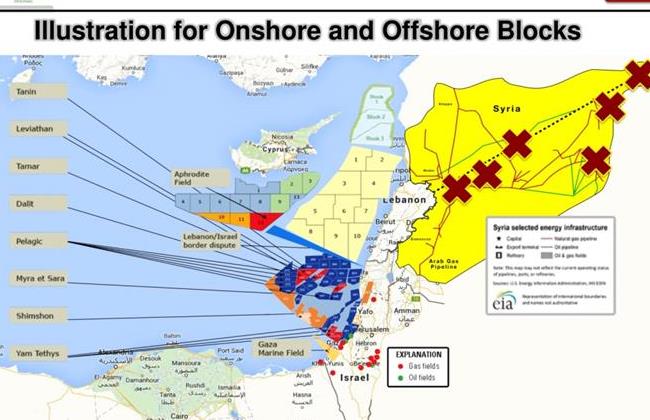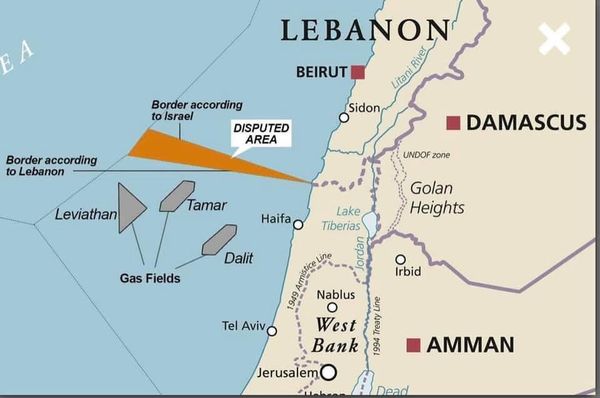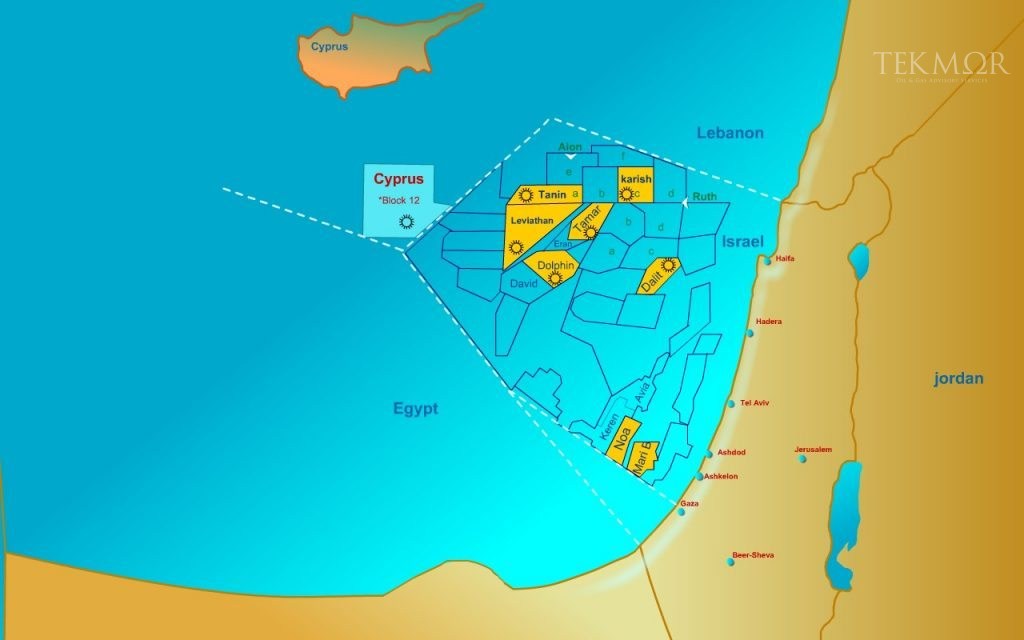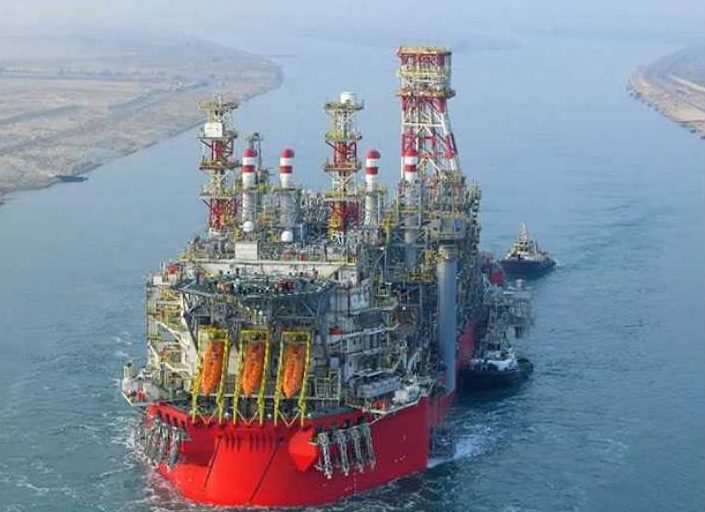
BEIRUT – Lebanon’s caretaker Prime Minister Najib Mikati said on Sunday that Israel was creating a new crisis by encroaching on Lebanese resources in disputed waters where both states hope to develop offshore energy resources.
“Based on this, we warn of the repercussions of any wrong step prior to the resumption of the mission of the U.S. mediator, whose recommencement has become more than urgent,” the caretaker PM added.

“The Israeli enemy’s attempts to create a new crisis, by encroaching on Lebanon’s maritime wealth, and imposing a fait accompli in a disputed area in which Lebanon adheres to its rights, is extremely dangerous,” Mikati said in a statement.
He made the remarks after an Israeli gas drilling ship crossed the so-called Line 29 and entered a sea area disputed by Lebanon.
The Iranian backed Hezbollah militant group and its ally the Amal movement have refused to take part in a panel formed by President Michel Aoun and Prime Minister Mikati with the aim of studying the written proposal that has been sent to Lebanon by U.S. sea border demarcation envoy.

Lebanese daily An-Nahar newspaper reported that the Israeli ship that plans to extract and store liquefied natural gas entered the Karish field, crossed the 29th line and is now located about 5 km from the 23rd line, in the disputed maritime border area .
Update
President Michel Aoun said any activity in the disputed area would amount to an act of aggression and a provocation, after the arrival of the natural gas storage and production ship operated by London-based Energean (ENOG.L).blob:https://yalibnan.com/74e3f878-88f6-4beb-9607-460432be41a4Sponsored by Advertising PartnerSponsored VideoWatch
Israel says the field in question is within its exclusive economic zone, not in disputed waters.
But in a statement, the Lebanese presidency said Aoun discussed with caretaker Prime Minister Najib Mikati the vessel’s entry “into the disputed maritime area with Israel, and asked the Army Command to provide him with accurate and official data to build upon the matter”.
Aoun said negotiations to delineate the southern maritime border continued and “any action or activity in the disputed area represents a provocation and an aggressive action”.
There was no immediate response from the Israeli government to Aoun’s statement. Israeli Energy Minister Karine Elharrar welcomed the vessel’s arrival and said she hoped it would be brought online quickly.
“We will continue to work to diversify the energy market and maintain stability and reliability,” she said.
Energean said its floating production storage and offloading vessel arrived on Sunday at the Karish field. The company said it planned to bring it online in the third quarter.
Mikati said Israel was “encroaching on Lebanon’s maritime wealth”
The United States began mediating indirect talks between the sides in 2000 to settle a long-running dispute between old foes that has obstructed energy exploration in the eastern Mediterranean. Lebanon is home to the heavily armed, Iran-backed Hezbollah group, which has fought numerous wars with Israel.
Hezbollah has previously warned Israel against drilling for oil and gas in the disputed area until the issue is resolved, and said the group would take action if it did so.
Both Israel and Lebanon have made claims at the United Nations regarding about their maritime border. Lebanon says its border cuts into the sea at an angle farther south and Israel’s claim runs farther north, creating a triangle of disputed waters.
(Reuters)/YL


Leave a Reply
You must be logged in to post a comment.